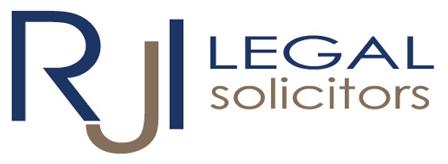It is relatively easy to find a free will template on the internet and fairly cheap to buy a will “kit” from a newsagent or online. Some websites even offer data-collection services that generate a will without requiring legal advice.
So, is it really a good idea to write your own will?
Why You Need a Valid Will
The main purpose of a will is to ensure that your assets are distributed according to your wishes after your death.
If you have a valid will, your executor must apply to the Supreme Court of NSW for a grant of probate. Probate gives your executor legal authority to collect and distribute your estate in accordance with your wishes. Although jointly held assets generally pass automatically to the surviving owner, such as holding joint property with your spouse, probate is still required for any assets held solely in your name, such as personal bank accounts, investments or real estate.
However, there are many situations where a valid will is essential to avoid delays, additional legal costs, and unnecessary emotional strain on your loved ones. A will that is invalid under NSW law could result in your estate being distributed according to intestacy rules rather than your wishes (Succession Act 2006 (NSW), Chapter 4).
Most people believe their circumstances are simple enough for a DIY will. However, the following examples show why legal advice is essential.
Your Homemade Will is Lost or Cannot Be Found
When a lawyer prepares your will, they usually hold the signed original in their safe custody and provide you with certified copies. If you lose the original, a copy held by the solicitor can be submitted to the probate court as evidence. If no copy exists, your family must apply for letters of administration – a slower and more expensive process than probate (Succession Act 2006 (NSW), s 61).
Your Will is Not Signed or Witnessed Correctly
Wills in NSW must comply with strict formal requirements. Under section 6 of the Succession Act, a valid will must:
- Be in writing;
- Be signed by the testator (you);
- Be witnessed by two people present at the same time; and
- Not be witnessed by beneficiaries.
A will that is incorrectly signed or witnessed may be ruled invalid. Even minor changes made after signing – such as crossing out words or adding handwritten notes – can invalidate the document unless formally done by codicil or by making a new will.
You Own a Business
If your business is expected to continue operating after your death, a legally appointed executor is crucial. They will have the authority to pay expenses, manage operations, or sell the business. Without a valid will, there may be no one with legal authority to act, potentially causing serious financial disruption.
You & Your Partner Are Not Married
If you are in a de facto relationship and own property either jointly or in separate shares, a valid will ensures your partner is properly provided for. While de facto partners have some entitlements under Chapter 4 of the Succession Act, they may need to prove the relationship in court – which can cause delay and conflict. A valid will avoids this.
Your Old Will Was Never Properly Revoked
If you made a will when you were younger, perhaps leaving everything to your parents, and now you have a spouse and children, an invalid or unsigned new will may result in your old will being upheld. Your current family may be left out – leading to disputes and costly, time-consuming family provision claims.
You Hold Property Solely in Your Name
If you own property independently (e.g., from a prior relationship or inheritance), it cannot be transferred after your death without a grant of probate. Without a valid will, your loved ones may need to apply for letters of administration, causing significant delays and extra expense.
You Leave Superannuation in Your DIY Will
Superannuation may form part of your estate and be dealt with in accordance with the terms of your will. However, in most cases, superannuation will be paid directly to a beneficiary nominated in your superannuation policy without any reference to the terms of your will.
Whilst you can provide in your will that your estate be given to whoever you would like there is only a small eligible group of beneficiaries who can directly receive superannuation benefits on your death.
Superannuation funds have particular rules for releasing funds to an estate and an invalid will makes this process more difficult to navigate.
A solicitor can coordinate your will and superannuation plan to avoid hardship and delays for your family.
Why You Should Use a Lawyer
A solicitor ensures that:
- Your will complies with all legal requirements under NSW law;
- Your personal circumstances – such as children, blended families, or business interests – are properly accounted for;
- Your superannuation and other non-estate assets are addressed appropriately;
- You have appointed suitable executors, guardians, or trustees where necessary.
Writing your own will may seem convenient, but the consequences of an invalid or unclear will can be severe – especially for your loved ones.
This article provides general information only. For tailored advice, contact our office on (02) 9466 5189 or email [email protected].
